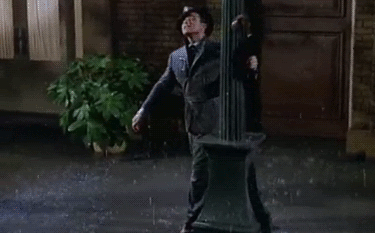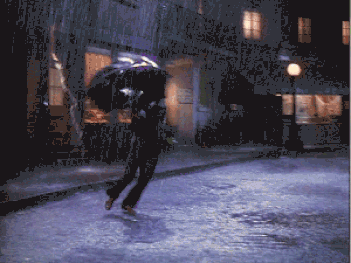|
Gene Kelly remains relevant because he consistently fought against the industry's expectations of him. — BY WENDY SULPHUR This post is part of our series "Classic Gene Kelly," in which fans share personal essays/stories on why Gene Kelly stands the test of time. As a little girl, I loved the image of old Hollywood. In fact, in one of my earliest memories, I manipulated dolls to make them "dance" on small mirrors that I pretended were a shiny dance floor. I found the crisp tapping on those endless Hollywood floors mesmerising. It might seem strange, then, that I came rather late to Gene Kelly. In hindsight, I struggle to understand why. Maybe it is because, when I was growing up, Singin in the Rain (1952) was rather predictably touted as Hollywood's Greatest Musical. Or perhaps it's because, during my childhood, Singin' in the Rain—and classical film musicals in general—enjoyed a popular resurgence, thanks to the That's Entertainment series. I naturally gravitated to musicals like Cabaret (1972) and Sweet Charity (1969). They seemed less mainstream and, thus, more appealing. I also watched traditional and contemporary ballets. Yet, to my shame, I never thought much about the sheer strength and discipline required of the male dancers. It was about seven years ago that Mr. Kelly left an indelible mark on me. I finally watched Singin' in the Rain all the way through. Two camera movements in the film's title number hooked me. The first one dollies toward Kelly as he hugs a lamppost and sings "a smile on my face." The second one cranes upward when Kelly opens his umbrella and then spins effortlessly around the empty street. I had to keep rewinding the film. The more I watched, the more I sat in awe; the more the layers of the film unfolded. Not only does the movie's satire still seem relevant, but the level of talent throughout is breathtaking. After watching Singin' in the Rain in full, I starting researching Gene Kelly. Ultimately, it was the man behind the camera that most interested me. Based on my reading, the picture I have of Gene Kelly is of a complex and determined man. He was a contradiction, tortured by his own ambitions. His belief in his own vision and abilities was intertwined with crippling insecurities about not achieving perfection or not being good enough. Perhaps Gene Kelly's desire for stardom and recognition sat awkwardly with the expectation of being a star? For me, his on-camera interviews are telling. He repeatedly maintains a steely look in his eyes while talking eloquently and politely about his life, never gushing or revealing too much about himself. In any event, Kelly was always pushing forward, fighting against what he "could not" or "should not" do, e.g., dancing with a mirror image of himself (Cover Girl), working alongside animated characters (Anchors Aweigh), taking the studio musical on-location (On the Town). His love of creating and directing—as well as his growing boredom of having to perform—not only says a great deal about Kelly as an artist, but also helps to explain why he and his films remain relevant today. Image: "Fuerteventura plant in sand" by Jill Heyer, Unsplash. Wendy SulphurWENDY loves Gene Kelly and dogs (she dreams of having two West Highland Terriers called Eugene and Francis). She resides in England's smallest county of Rutland and works at National Health Service Trust Headquarters. In addition to being an avid reader—with a passion for Charles Dickens, H.G. Wells, and George Orwell--Wendy knits, crochets, sews, and felts.
1 Comment
Ruffalina
1/30/2019 11:55:42 am
He was on the cusp of Leo/Virgo which explains a lot of his complexities! I just love him ❤
Reply
Leave a Reply. |
Gene Kelly Fans



 RSS Feed
RSS Feed